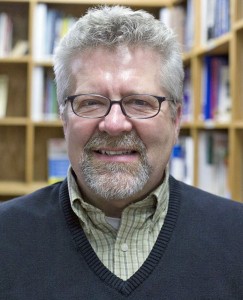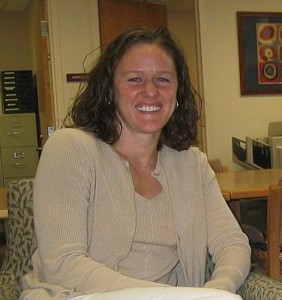 Applying to graduate and professional school takes many months of hard work, but Gustavus students find support from faculty, staff, and peers to help them through the process of furthering their education.
Applying to graduate and professional school takes many months of hard work, but Gustavus students find support from faculty, staff, and peers to help them through the process of furthering their education.
While many seniors at Gustavus are busy donning professional outfits for job interviews and diligently updating their LinkedIn accounts, a smaller number of juniors and seniors are in the middle of the nearly year-long process of applying to graduate or professional school.
According to the Director of the Center for Servant Leadership (CSL) Jeff Stocco, between 30% and 35% of Gusties go on to graduate or professional school following graduation each year. Virtually every academic department at Gustavus has sent students on to further schooling at some point in time.

For many students, a graduate or professional degree is required to practice in the field they’re interested in. For example, if a student wants to practice in the health field, they essentially have to go on for a professional degree. However, some students just want to continue studying an area that they’ve become really passionate about in college.
“I really enjoy literary theory, and I really enjoy foreign languages, so I thought about what career path I could pursue in that. There are lots of opportunities in the government and so forth, but I really enjoy literature, and I think about it all the time, so I thought what would be better than to go back to school?” Senior Scandinavian Studies and Latin Honors Major Zach Blinkinsop said.
Blinkinsop is in the process of applying for a range of Masters and Ph.D. programs, and would like to study the effects of linguistic changes in Scandinavian literature.
For Senior Biology Major and Pre-Health Club President Kat Dahl, the decision to pursue further schooling was more practical than intellectual, as she plans to attend medical school in the fall.
“My mother is a family physician, and by observing my mother’s work, I have learned a great deal about the field of medicine. After exploring possible career paths, I came to the conclusion that I would love to have a career like my mother’s. From that point on, I began a pre-medical curriculum and was committed to pursuing a career in medicine,” Dahl said.
In order to apply to grad school, students must have a strong grasp on what their particular interests are, since grad school study is much more focused and in-depth than undergraduate schooling. A school’s competitiveness is less important than what the student ultimately wants to do, according to Stocco.
 “The students who apply to graduate school programs will do the best job when they identify schools that have that really specific interest that they have. And grad schools will take them more seriously if they can be as specific as possible. This involves looking at catalogs online, taking a look at what faculty are studying there, and then identifying programs where they’re likely to find a mentor who will guide them through the process,” Stocco said.
“The students who apply to graduate school programs will do the best job when they identify schools that have that really specific interest that they have. And grad schools will take them more seriously if they can be as specific as possible. This involves looking at catalogs online, taking a look at what faculty are studying there, and then identifying programs where they’re likely to find a mentor who will guide them through the process,” Stocco said.
According to Dahl, the application process is costly and time consuming, and therefore can’t be done on a whim.
“It is an extensive process that takes a lot of planning. Only apply if you are passionate and committed to what you plan on studying,” Dahl said.
The process generally starts in a student’s junior year, and in the case of applying to medical school, even earlier, as medical school requires a number of prerequisite classes.
Students applying to grad schools begin researching specific programs and honing in on their interests in the spring of their junior year, whereas medical school applications open at this time, so students wishing to apply to medical school must know their plans well in advance.
After deciding on a few programs and schools, students spend their summers seeking out letters of recommendation, writing statements of purpose and essays, taking the GRE, and otherwise developing their applications.
Come fall, students continue working on their statements of purpose and refining their applications, as well as retake the GRE if necessary.
The process of applying to grad school is overwhelming, but will be rewarding in the end, according to Blinkinsop.
“The reason it’s so daunting and overwhelming is not necessarily the amount of work that needs to be done, but the fact that it requires so much introspection. You have to really think about not only what you want to do in grad school, but also about what you want to do with your life, and how you’ve prepared yourself for that. You also have to consider whether you’d be a good fit for the graduate school, what you can bring them, and what they can help you with, so it’s just a lot of soul-searching,” Blinkinsop said.
For Dahl, the hardest part of the process has been the amount of time spent waiting on exam results, application processing, interview offers, and now that interviews are over, waiting four to six months before hearing back from admissions.
“It is hard to pour so much time and energy into something and spend so much time in the dark. I have truly learned the importance of patience,” Dahl said.
Applying to grad and professional schools can overwhelm students, but Gustavus offers a number of support services from a variety of departments to help students along the way.
“It’s a collective effort, there’s no one office that does it all,” Stocco said.
Stocco serves as a general advisor for students applying to grad school, helping with the process of how to apply and the parts of the application, as well as helping students identify programs they may be interested in.
Health Professions Coordinator in the CSL, Heather Banks offers advising to students going to medical or professional school in the health field.
“I felt well-prepared to apply to medical school, and I credit most of that to resources available at Gustavus. Heather Banks is an amazing asset for pre-health students. In as early as their first year, she prepares students for the application process by making sure they are taking the right prerequisite courses, setting up shadowing and volunteer opportunities, and making them aware of activities outside of the classroom that they should get involved in. During the application process, she reads over personal statements, sets up mock-interview experiences, and acts as a counselor to help students maintain sanity,” Dahl said.

While the CSL offers advising services, students also get support from their academic departments.
“I’m not an expert on any specific subject, so I think how the student does the best job of planning is talking to faculty in that discipline and getting some really specific ideas about places that faculty think would be good to apply to. And then I will help this whole range of students with the actual process. So I think it’s kind of a joint effort,” Stocco said.
The majority of students who go to grad school go directly on after graduating from Gustavus, but the CSL has observed an increasing trend of students taking gap years or doing year-of-service programs, such as Peace Corps or Teach for America, before dedicating themselves to multiple years of further study at grad and professional school.
“They’re doing something where they’re giving back, and in the process of doing that, they do some discernment in terms of what they want to do and where they want to go from there,” Stocco said.
For some students, taking a gap year is a way to build up experience. For example, a number of pre-health students work as medical scribes during their gap year to gain skills in the health field and boost their resume, according to Banks.
For others, it’s a way to take a break from school before committing themselves to multiple years of additional study.
“Everybody takes a gap year for different reasons, and I think it just helps students make a stronger application. Sometimes it gives students time to breath and reflect on what they need to do; it’s not like they weren’t a strong applicant, they just want to do something different before they go dedicate eight years of their life to something. But I think a lot of times it’s really just about being the best applicant,” Banks said.
While applying to graduate or professional school requires a lot of time, energy, money, and reflection, the joy of receiving an acceptance letter and being able to continue their education is worth the many months of hard work for students in the end.